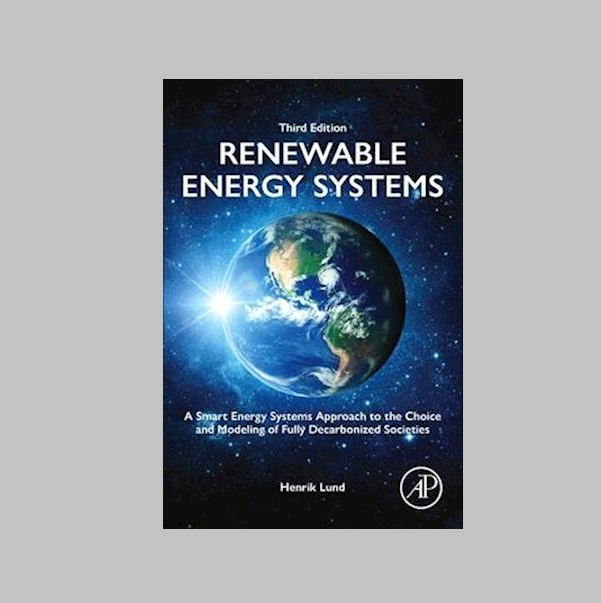Case Studies
Below, you will find a filter. Select one of the categories to view the studies which have been completed with EnergyPLAN under this category. Many of the studies relate to more than one category.
Important Note: After you select a category, a short list will appear. Therefore, you may need to select ‘Older posts’ at the bottom of the list to view more of the studies in that category.
sEEnergies
As a response to the European Commission’s 2050 decarbonization goals, sEEnergies uniquely considers all aspects of the Energy Efficiency (EE) First Principle. By applying it in sectors and markets, country-by-country and grid-by-grid, and by combining temporal and spatial analyses, sEEnergies developed an innovative, holistic and research-based EE-modelling approach. The overall aim of sEEnergies was to quantify and operationalize the potentials...
Nuclear power
Denmark
Nuclear
Solar Energy
Authors:
Jakob Zinck Thellufsen, Henrik Lund et al
Since 2022, a number of analyses have been published using EnergyPLAN concerning the role of nuclear in the energy transition. Below find the link to the notes: Fakta om atomkraft version 1 Fakta om atomkraft version 2 And to the journal paper: Cost and system effects of nuclear power in carbon-neutral energy systems EnergyPLAN scenarios for the reference renewable...
Varmeplan Danmark 2021
Varmeplan Danmark 2021” er et konkret bud på, hvad der bør ske i varmesektoren for, at Danmark kan gennemføre den grønne omstilling på en teknisk, økonomisk og miljømæssig hensigtsmæssig måde i 2030 (VPDK-30) såvel som i 2045 (VPDK-45). Med ”Varmeplan Danmark 2021” vises, at varmesektoren kan omstilles hurtigt og med teknologier, der allerede er tilgængelige på markedet: 36-40% energibesparelser i...
Energy Model of Italy and Penetration of Renewable Energy (2010)
Italy
100% Renewable Energy
CHP
Electric Vehicles
Authors:
Alessandro Franco, Pasquale Salza
In 2009-10, Professor Alessandro Franco, together with Pasquale Salza from the University of Pisa, used the EnergyPLAN model for analysing the perspectives of integration of a renewable energy system in the field of a complex energy system like the Italian scenario. The aim of this study has been to show the potential of an integrated analysis in studying and planning...
Energy System Analysis of Waste-to-Energy technologies (2007-2009)
Denmark
100% Renewable Energy
The focus of this PhD thesis by Marie Münster is the analysis of the optimal use of waste for energy production in Denmark, now and in the future. The object of analysis is waste which is not reused or recycled, but can be used for energy production. Different Waste-to-Energy technologies are analysed through energy system analysis of the current Danish...
Technical Optimisation of the Greek Interconnected Energy System of 2020 using the EnergyPLAN model
Authors:
Nikolaos Alagialoglou
In this project, Nikolaos Alagialoglou has analysed how the Greek Interconnected Energy System of 2020 can be technically optimised aiming at a high wind penetration. The way in which the operation of the units is technically regulated according to the optimisation process of EnergyPLAN is described and the outputs are compared with similar results obtained from CRES simulations. A sensitivity...
Fuel cells and electrolysers in future energy systems (2006-2009)
Denmark
100% Renewable Energy
CHP
Energy Savings
Heat Pumps
Photovoltaics
Solar Thermal
Wave Energy
Wind Energy
Authors:
Brian Vad Mathiesen
In his PhD thesis, Fuel cells and electrolysers in future energy systems, Brian Vad Mathiesen used the EnergyPLAN model as part of the research. Fuel cells and electrolysers have the potential for supplying three main energy services to the end-users: electricity, heat and transport; and can replace existing less efficient or more polluting technologies. The challenge is to identify in which applications these technologies should be used for. ...
Local Energy Markets and MOSAIK (2002-2004)
Denmark
Flexibility
Wind Energy
In 2002-2004, two research projects funded by the Danish Energy Agency and the Danish Environment and Energy Ministry used the EnergyPLAN model for designing a flexible energy system which could promote the integration of both CHP and wind power. It was concluded that significant benefits are connected with an increase in the flexibility of the Danish energy system. On the...
A Romanian energy system model and a nuclear reduction strategy (2011)
In the PhD project “Computer Aided Design for stand-alone hybrid renewable energy systems”, Dan Gota developed an energy model for the Romanian energy system. The model for the Romanian energy system was made with the purpose of providing a tool for the analysis of future sustainable energy strategies. The model represents the total national energy system and is detailed to...
